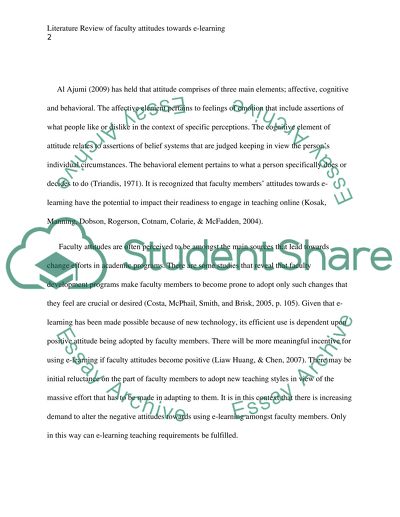Retrieved from https://studentshare.org/family-consumer-science/1429140-ch2-literature-review-of-faculty-attitudes-towered-e-learning
https://studentshare.org/family-consumer-science/1429140-ch2-literature-review-of-faculty-attitudes-towered-e-learning.


